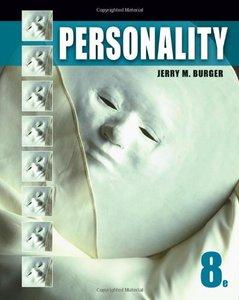Have you ever rationalized?
In trying to decide whether to go to a friend’s party or stay home and study for an important exam, a student would experience increasing levels of anxiety. Freud reasoned that anxiety is a sure sign of the id–superego inner conflict and that in order to reduce levels of anxiety, the ego may use defense mechanisms (Cramer, 2003, 2006).
Defense mechanisms are Freudian processes that operate at unconscious levels and that use self-deception or untrue explanations to protect the ego from being overwhelmed by anxiety
According to Freud, a student’s ego has two ways to reduce anxiety over deciding whether to party or study. The student’s ego can take realistic steps to reduce anxiety, such as motivating or convincing the student to stay home and study. Or the student’s ego can use a number of defense mechanisms, which reduce anxiety by deceiving the student to think it’s fine to party and then study tomorrow. Here is a brief summary of some of Freud’s more popular defense mechanisms.
Rationalization involves covering up the true reasons for actions, thoughts, or feelings by making up excuses and incorrect explanations.
A student may rationalize that by going to a party tonight he or she will feel more motivated to study for the exam tomorrow, even if he or she will be very tired and in no mood or condition to study tomorrow.
Denial is refusing to recognize some anxiety-provoking event or piece of information that is clear to others.
Heavy smokers would be using denial if they disregarded the scientific evidence that smoking increases the risk of lung cancer and cardiovascular disease and in addition would be using rationalization if they say they can quit any time they want.
Repression involves blocking and pushing unacceptable or threatening feelings, wishes, or experiences into the unconscious.
Having feelings of jealousy about your best friend’s academic success might be threatening to your self-concept, so you unknowingly block these unwanted feelings by also unknowingly pushing them into your unconscious.
Projection falsely and unconsciously attributes your own unacceptable feelings, traits, or thoughts to individuals or objects.
A student who refuses to accept responsibility for cheating during exams may look at other students and decide that they are cheating.
Reaction formation involves substituting behaviors, thoughts, or feelings that are the direct opposite of unacceptable ones.
A person who feels guilty about engaging in sexual activity may use reaction formation by joining a religious group that bans sex.
Displacement involves transferring feelings about, or response to, an object that causes anxiety to another person or object that is less threatening.
If you were anxious about getting angry at your best friend, you might unknowingly displace your anger by picking an argument with a safer individual, such as a salesclerk, waiter, or stranger.
Sublimation, which is a type of displacement, involves redirecting a threatening or forbidden desire, usually sexual, into a socially acceptable one.
For instance, a person might sublimate strong sexual desires by channeling that energy into physical activities.
Conclusions.
Freud believed defense mechanisms are totally unconscious, which means that, if a best friend or spouse points out that you
are being defensive, you will absolutely deny it. We all use defense mechanisms at some time, and they can be helpful or
harmful. For example, the occasional use of defense mechanisms is normal and helps reduce conflict and anxiety so we
can continue to function as we work on the real cause of our anxiety. However, the overuse of defense mechanisms may
prevent us from recognizing or working on the real causes of our anxiety.
There is growing scientific evidence that we do indeed use unconscious defense mechanisms much as Freud theorized, which is to reduce anxiety and conflict. In fact, many of us have a dominant or most-often-used defense mechanism, which may be effective in reducing short-term but not necessarily long-term anxiety (M. C. Anderson,2009d; Cramer, 2003, 2006).
Takemn from Plotnik




